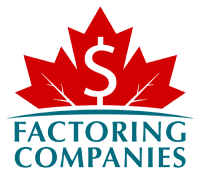Invoice Factoring Questions, Answered
What is Invoice Factoring?
So what is invoice factoring? Invoice Factoring is a way for businesses to boost their working capital without taking out a traditional loan or damaging their credit rating. The process involves selling your unpaid customer invoices (accounts receivable) to a third party, known as a factoring company, at a discounted rate. The factoring company will pay you a large percentage of the invoice value upfront and collect payments from your customers for you. This means you will have immediate working capital to pay your suppliers or cover payroll, expansion, and other operating expenses – all without accumulating debt. Once your clients have settled their invoices, the remaining balance is sent to you minus a small factoring fee.
Who Uses Factoring?
Almost any business that sells services or goods to other companies could be eligible for invoice factoring. This is because, unlike a traditional loan, the applicants for factoring are usually approved or rejected based on the creditworthiness of their customers rather than their own credit scores. So, a short or poor credit history usually won’t disqualify you from being approved as long as your customers have a strong payment history.
The more lenient and flexible approval requirements for factoring make it one of the most accessible financing solutions available today. Small businesses, midsize companies, startups, and large corporations across multiple industries use factoring daily. Some of the most common industries that use factoring include transportation, staffing, manufacturing, government contractor, and oilfield. You can explore how invoice factoring works on each related industry page.
How Can Factoring Help a Business?
There are many ways that factoring can help businesses, but the main benefit is that companies can get paid immediately for work they have completed or goods they have delivered instead of waiting weeks or even months for their clients to pay them. Invoice factoring is a great way to stabilize your cash flow. Plus, the factoring company typically won’t restrict what you can spend that money on, so you can cover payroll, hire new staff, pay your fixed expenses, start saving, or invest in your business growth.
How is Factoring Different From a Bank Loan?
Factoring is one of the most convenient alternatives to traditional financing options like a bank loan or line of credit. There are a number of features and benefits that set this financing solution apart. First, it is debt-free. You are not taking out a loan based on extensive collateral or unpredictable future income; you are simply getting an advance on money already owed to your business. Invoice factoring doesn’t even require collateral, nor does it accumulate expensive interest. As factoring is based on outstanding accounts receivables, not your net worth, you do not have a limit to how much financing you can receive. You can also be approved immediately for advances, regardless of your business background, credit score, or collateral, because factoring companies look at your customers’ creditworthiness rather than your own.
How Does Factoring Affect the Factoring Client’s Customers?
If you choose to factor your invoices, the factoring company will send a Notice of Assignment to your customers to let them know they will assume ownership of the invoices. Many of your clients may already be familiar with the invoice factoring process and won’t have a problem with you factoring their invoices. Their original service contract will still be with you; the only change is where they will be sending their payments. Reputable factoring companies will have well-trained and courteous collections professionals who will treat your customers with the same respect that they treat their own clients – protecting your customer relationships.
How Much Does Invoice Factoring Cost?
The cost of factoring will differ depending on which company you partner with, so you may need to shop around to find the best match. Some factors will charge you a flat fee per invoice, while others will charge you a percentage fee based on several factors, including the industry your business operates in and the creditworthiness of your clients. Typical factoring fees fall between one and five percent, but this will vary from factor to factor. It is also important to read your factoring agreement carefully to avoid being surprised by hidden fees and costs.
Do you want to learn more about invoice factoring? Our Invoice Factoring Guide details everything you need to know about factoring, from what to look for in a factoring company to a complete breakdown of the factoring process, its benefits, and any costs you may face.
Get an instant factoring estimate
Factoring results estimation is based on the total dollar value of your invoices.
The actual rates may differ.
CLAIM YOUR FREE FACTORING QUOTE TODAY!
PREFER TO TALK?
You can reach us at
1-866-477-1778
What People Say About Our Factoring Partners
“Everyone I talk with is very knowledgeable and patient in helping get the information needed to improve my Business! Thank you!”
“The whole staff is very friendly knowledgeable, helpful, and go to extra mile to make sure you accomplish all your goals.”
“I am more knowledgeable about my business and have more help now than I could have ever imagined. Great experience !!”
“Very helpful and welcoming from the beginning to present. Outstanding TEAM!!!!”
“I’m very happy with the service I’ve received from beginning to end.”
“Good customer service, a good partner for your business to grow!”
Get an instant factoring estimate
Factoring results estimation is based on the total dollar value of your invoices.
The actual rates may differ.
CLAIM YOUR FREE FACTORING QUOTE TODAY!
PREFER TO TALK? You can reach us at 1-866-477-1778
As Seen In






Our Partners Belong To






